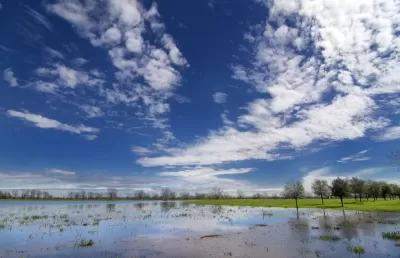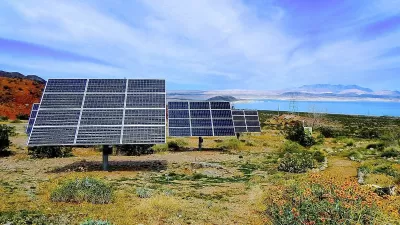In an effort to preserve coastal Texas ecosystems and fight global warming, a new nonprofit is paying landowners to not develop their land.

The Texas Coastal Exchange is an organization providing financial incentives to landowners to protect coastal lands, including coastal marshlands and prairies, reports Perla Trevizo. Payments come from carbon-footprint donations and are based on the land area, the type of ecosystem, and amount of carbon dioxide being sequestered.
"The way the system works, the donor pays $20 to support the storage of one metric ton, with $17 going to the landowner in the form of a grant and the other $3 being used to support the educational outreach and administration of the organization," writes Trevizo.
As part of the deal, property owners agree to not sell or develop their land for ten years. It is a mutually beneficial agreement—natural lands are preserved and landowners, including farmers and ranchers, have a guaranteed source of income.
"The exchange’s initial goal is to enroll 2 million acres of undeveloped coastal lands in Texas. Its hope is that this model is replicated elsewhere in the country," notes Trevizo.
FULL STORY: New Texas nonprofit offers novel approach for preserving coastal lands, combating global warming

Montreal Mall to Become 6,000 Housing Units
Place Versailles will be transformed into a mixed-use complex over the next 25 years.

Planetizen Federal Action Tracker
A weekly monitor of how Trump’s orders and actions are impacting planners and planning in America.

DARTSpace Platform Streamlines Dallas TOD Application Process
The Dallas transit agency hopes a shorter permitting timeline will boost transit-oriented development around rail stations.

Study: 4% of Truckers Lack a Valid Commercial License
Over 56% of inspected trucks had other violations.

Chicago Judge Orders Thousands of Accessible Ped Signals
Only 3% of the city's crossing signals are currently accessible to blind pedestrians.

Philadelphia Swaps Car Lanes for Bikeways in Unanimous Vote
The project will transform one of the handful of streets responsible for 80% of the city’s major crashes.
Urban Design for Planners 1: Software Tools
This six-course series explores essential urban design concepts using open source software and equips planners with the tools they need to participate fully in the urban design process.
Planning for Universal Design
Learn the tools for implementing Universal Design in planning regulations.
City of Mt Shasta
City of Camden Redevelopment Agency
City of Astoria
Transportation Research & Education Center (TREC) at Portland State University
US High Speed Rail Association
City of Camden Redevelopment Agency
Municipality of Princeton (NJ)





























